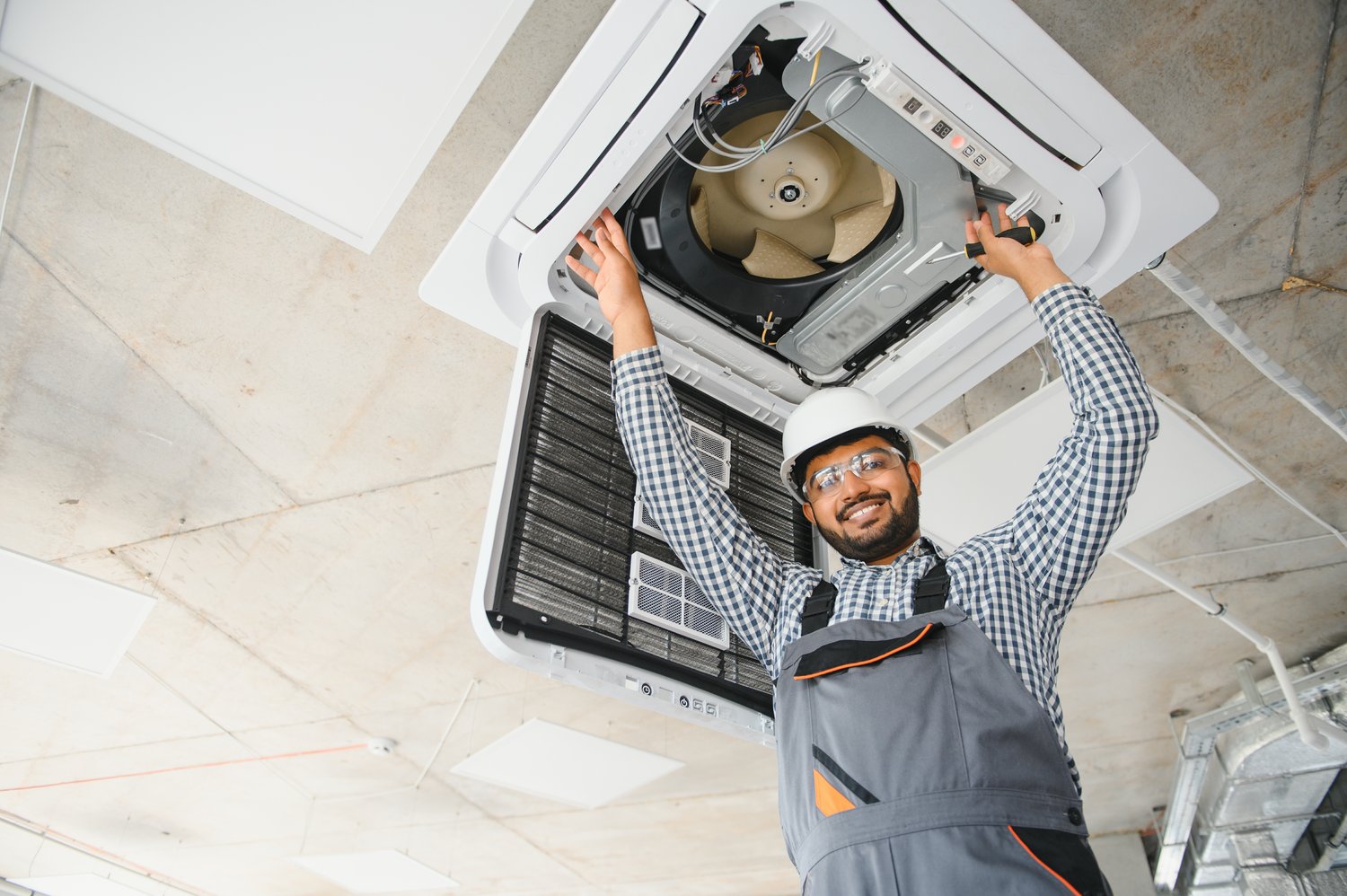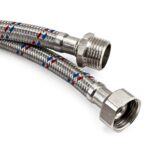On a sweltering summer day, a malfunctioning window air conditioner can quickly turn your living space into an uncomfortable sauna. Knowing how to effectively troubleshoot and resolve common issues with your unit can be a game-changer, allowing you to enjoy cool, refreshing air in your home whenever you need it. This article delivers essential repair tips to help you keep your window air conditioner running efficiently throughout the hottest months.
- Learn to identify the most frequent problems encountered with window air conditioners and explore practical solutions to address them.
- Familiarize yourself with the basic components of a window air conditioner, empowering you to diagnose and repair issues with confidence.
- Discover routine maintenance tasks that can prevent problems, extend the lifespan of your unit, and ensure optimal performance.
- Understand when it’s time to set aside your tools and call in a professional for complex repairs.
Armed with these insights, you’ll be well-prepared to tackle window air conditioner issues head-on, maintaining a cool and comfortable home environment while maximizing the longevity of your unit. Dive into the details of each section to empower your DIY repair skills.
Common Issues and Window Air Conditioner Repair Tips
Window air conditioners are a popular choice for many due to their efficiency and convenience. However, like any appliance, they can encounter some common problems. Understanding these issues and learning how to troubleshoot them effectively can save you time and money.
One frequent problem is inadequate cooling. This can often result from a dirty air filter. A simple solution is to regularly clean or replace the filter to ensure proper airflow and efficiency. Another common issue is the air conditioner not turning on. Before assuming the worst, check the power supply and circuit breaker, as these are common culprits.
Noisy operation is another common concern. This may be due to loose parts or debris trapped in the fan. Tightening screws or thoroughly cleaning the unit may resolve this issue.
If your air conditioner is leaking water inside your home, the problem could be with the drainage system. Ensure that the unit is properly installed with a slight tilt towards the outside to facilitate drainage.
By addressing these issues promptly and effectively, you can maintain your window air conditioner’s performance and extend its lifespan.
Understanding Basic Components
To efficiently troubleshoot and repair a window air conditioner, it’s vital to understand the basic components that make up the unit. Familiarity with these parts helps diagnose issues more accurately.
The compressor is the heart of the air conditioner, responsible for compressing refrigerant and circulating it through the unit. It’s essential for cooling and dehumidifying the air. The evaporator coil absorbs heat from inside your home, contributing to the cooling process.
The condenser coil, located on the exterior side, expels heat to the outside. Maintaining cleanliness around this component is crucial for optimal performance.
The thermostat controls the temperature settings and can often be the source of problems if the unit isn’t cooling as expected. Ensuring it functions correctly is important for your air conditioner’s efficiency.
The blower fan circulates the cooled air throughout your space. Any obstruction or malfunction can lead to uneven cooling or increased noise levels.
Familiarizing yourself with these components can ease diagnosis and help you perform effective repairs or maintenance on your window air conditioner.
Routine Maintenance and Essential Window Air Conditioner Repair Tips
Regular maintenance of your window air conditioner can significantly enhance its efficiency and extend its lifespan.
A crucial task is to routinely clean or replace the air filter.
Dust and debris can accumulate, restricting airflow, and reducing efficiency.
A clean filter ensures optimal airflow and prevents allergens from circulating in your home.
Checking and cleaning the air conditioner’s coils is another vital maintenance task.
Dirty coils can impede the cooling process. Carefully inspect the evaporator and condenser coils.
Cleaning them annually or as needed will maintain effective heat exchange functions.
Additionally, ensuring the unit is securely mounted prevents unnecessary vibrations and noises.
Examine the window seals around the air conditioner to ensure there are no gaps.
Tight seals will maximize cooling potential and save energy by preventing warm air from entering.
Lastly, conduct a general inspection of other components.
Examine the drain pan and drainage system to avoid water leakage and associated damages.
Routine care can prevent costly repairs, keeping your window air conditioner in top shape for summer comfort.
Tools Needed for Window Air Conditioner Repairs
Having the right tools is essential for safely and efficiently conducting window air conditioner repairs.
A basic toolkit should include screwdrivers, both flathead and Phillips, to handle the various screws on the unit.
A multimeter is another crucial tool.
It assists in diagnosing electrical issues, allowing you to check for continuity and verify proper voltage levels.
For cleaning tasks, having a soft brush and vacuum cleaner can help in clearing away dirt from coils and filters effectively.
A coil cleaning solution may also be necessary for more thorough maintenance.
For sealing tests and adjustments, a caulking gun with weatherproof sealant will enable you to address any gaps or leaks around the unit.
This ensures efficient cooling and reduced energy consumption.
By equipping yourself with these essential tools, you can confidently approach repair tasks, keeping your air conditioner functional and efficient.
When to Seek Professional Help with Window Air Conditioner Repair Tips
Troubleshooting window air conditioners can often be tackled with DIY solutions, but some situations demand the expertise of a professional.
One common situation where professional help is essential is if your air conditioner isn’t cooling efficiently despite regular maintenance. This could indicate deeper issues such as refrigerant leaks or compressor failure, which require specialized tools and knowledge to resolve. Attempting repairs without proper training can further damage your unit.
Another red flag is strange noises emanating from your unit. Vibrations, rattling, or hissing sounds can signal mechanical issues that need a professional touch. Ignoring these sounds might lead to bigger problems, potentially resulting in costlier repairs or replacing the entire unit.
If you notice water pooling under your window air conditioner, it might result from a blocked drainage system or improper installation. While cleaning a clogged drain might be doable, persistent leaks necessitate an expert’s assessment to prevent mold growth and water damage.
Electrical issues, such as frequent power cycling, tripping breakers, or failing to turn on, also warrant professional assistance. Skilled technicians are trained to safely diagnose and fix electrical problems, minimizing the risk of electrocution or further complications.
In summary, while basic window air conditioner repairs and maintenance can often be handled independently, don’t hesitate to seek professional repair services when faced with complex, potentially hazardous issues. This proactive approach ensures your air conditioner functions efficiently and securely.
Frequently Asked Questions About Window Air Conditioner Repair
What are the most common issues with window air conditioners?
- Not cooling properly
- Leaking water
- Strange noises
How often should I clean the filters?
Clean the filters every month during heavy use to maintain efficiency.
Can I repair refrigerant leaks myself?
It’s recommended to call a professional for refrigerant issues due to handling safety.
What tools do I need for minor repairs?
- Screwdriver
- Multimeter
- Fin comb
When should I replace my window air conditioner?
Consider replacement if the unit is over 10 years old or repair costs exceed half the price of a new model.
How can I improve the efficiency of my air conditioner?
- Regular maintenance
- Proper sealing
- Ensure correct unit size for the room





